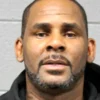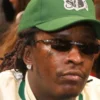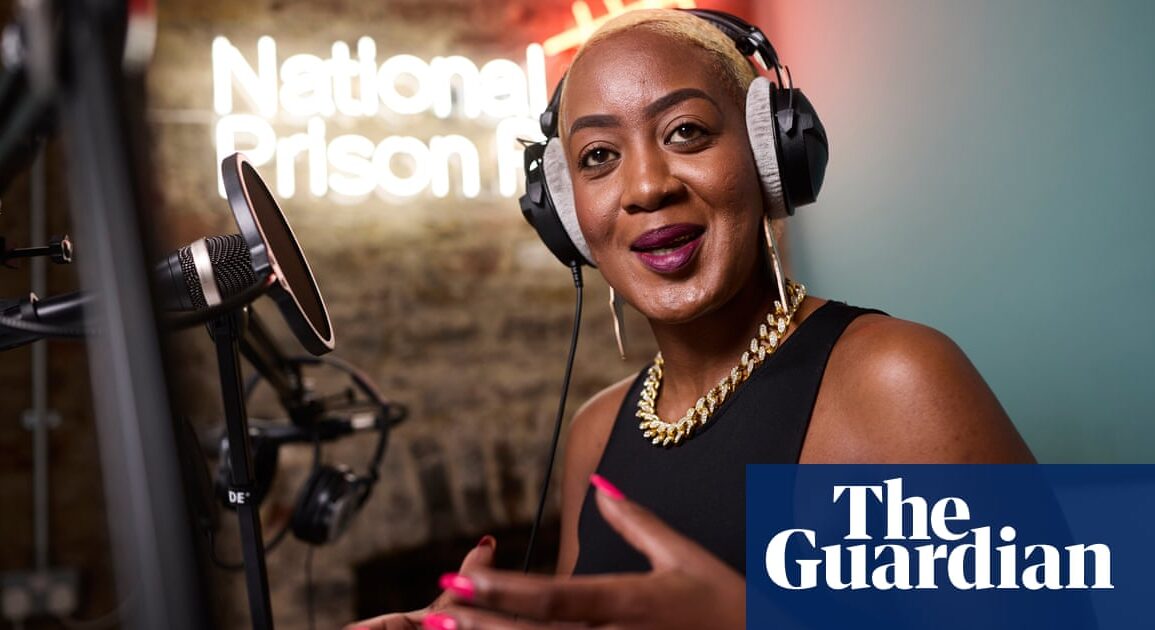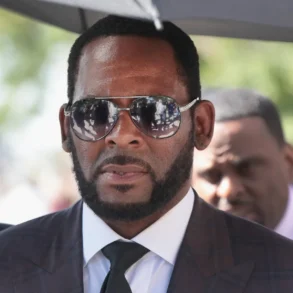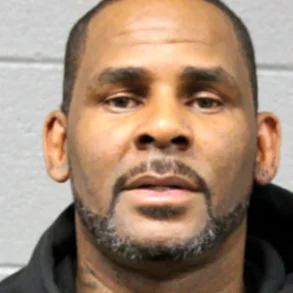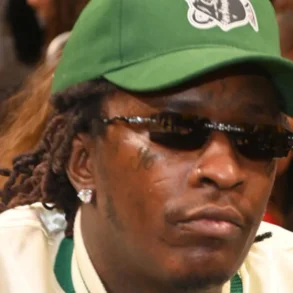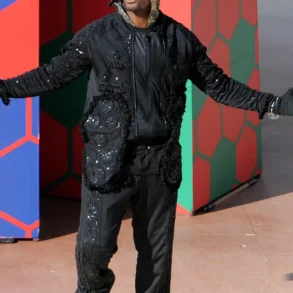“It’s your girl, Lady Unchained, and you’re listening to Free Flow – the instrumental show where we play the beat twice so you can get your bars right!”
It’s a rainy Thursday afternoon and I’ve just arrived at the secret London location of one of the homes of National Prison Radio (NPR) (the others being inside the walls of nearby HMP Brixton, and inside HMP Styal in Cheshire). Lady Unchained, an award-winning poet, author and broadcaster, is sitting in a soundproof room on the other side of a glass window recording her show Free Flow. Like all broadcasts from NPR, it is only available to residents of His Majesty’s prisons.
Every week, a selection of hip-hop instrumentals is played for listeners up and down the country to practise their poetry and rapping from their cells. Lady Unchained also offers advice and tips on how to build a crime-free future using the power of creativity, lyrics and positivity. Listeners can call up and rap into an answering machine, which she plays back and gives feedback on. Over the last six years, the show has gained thousands of fans who have found connection and catharsis through the artistic process.
“It’s a community of listeners who are going through personal journeys,” says Lady Unchained. Last summer, when I delivered the National Literacy Trust’s New Chapters programme with her at HMP Feltham Young Offender Institution and at Oakhill secure training centre, many teenagers recognised her voice from Free Flow and were excited to show her their bars. “Sometimes people aren’t even rapping,” she beams. “They’re just calling in to say: ‘Big up the guy who called in last because I felt what he was saying.’ That for me is everything.”
In essence, Free Flow puts the most musical members of the prison population of England and Wales – almost 90,000 people – in dialogue with each other. During my studio visit, recordings sourced from HMP Wandsworth in London, HMP Wetherby in Yorkshire, HMP Liverpool and others are all played on air. The show is an example of how evolution in technology and music is helping to provide consistent, therapeutic and rehabilitative activity in a financially strained public service context. Clips of homemade rap freestyles filmed on prison wings proliferate on TikTok and Instagram, but Free Flow offers a safe, moderated space where rappers can find a reliable, remote community audience.
NPR is the world’s first national radio station for people in prison. It was launched in 2009 by Prison Radio Association, which runs it in partnership with the Prison Service. It is made by prisoners for prisoners and aims to promote a culture of positive change while acknowledging and addressing the challenges of prison. About 84% of prisoners who are able to listen to NPR do so. Of those, nearly half listen every day. An average listener tunes in for nine or more hours a week.
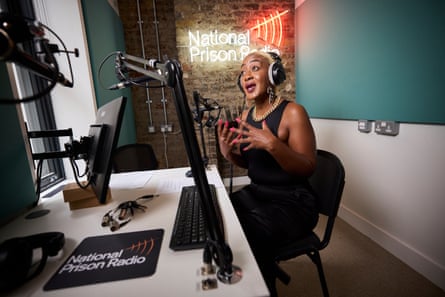
Seated in the booth beside Lady Unchained is a guest host who goes by the name of Chequez. He is in his early 30s, well built with short black hair. I ask how they met and he recounts being incarcerated during the early months of the pandemic in 2020. “Guards died, prisoners died,” he says. “I caught Covid and was coughing up blood. I was ringing my mum and saying: ‘I don’t know if I’m gonna make it.’” But after getting access to a laptop, he started listening to Free Flow. Lady Unchained’s bubbly voice, relatable advice – she spent some time in prison when she was younger – and the selection of beats, from the melancholic to the uplifting, inspired him to start writing.
“It makes a big difference to someone’s day if they can hear a beat, like it, express themselves on the beat and then put it to bed. It’s like writing in a notepad: if you’re stressed and you put everything down, you can sleep better. It’s a good outlet for anybody struggling in prison,” he says. He shows me his lyric book: its pages are creased and ruffled from heavy use, full of sprawling penned reflections. “I was letting out a lot of pain, writing to my children, helping them to make sense of where I am and what I’m doing with my life. Then I thought I’d switch up the vibe.”
Free Flow is split into six sections, five of which showcase beats from different hip-hop styles – UK and US rap, grime, drill – with the final section dedicated to playing submissions. In August 2022, Chequez heard an upbeat UK garage instrumental. Having maintained a nostalgic love for the genre since attending pirate radio sessions as a teenager in London, he called up to record a verse. It was played back weeks later, receiving positive responses from listeners. After his release from HMP The Mount in Hertfordshire a few months later, while looking for housing and a job, he turned the verse into a single called Forward. Its video, featuring an appearance from Lady Unchained, is out now.
Chequez is far from the only person to have been energised by Free Flow, which was launched back in 2018 as a simple instrumental show. “At the start, there was no feedback loop,” says producer Arthur Hagues. But when Covid began to bite in June 2020, he had the idea of getting listeners to call in and rap their bars down the phone. It was a pressure-makes-diamonds piece of adaptation born out of cancelled education classes, 24-hour bang-ups (fully locked wings) and concerns about hygiene to stop the virus spreading.
“Prisons had expanded phone services in cells, so we made the most of that,” he continues. “Previously, people had to write to us via letter, but calls were more hygienic.” They were also easier and faster. It proved a potent formula: soon the NPR team – mostly prisoners and ex-prisoners who receive training in radio production while serving sentences at Styal and Brixton – were receiving hundreds of calls from people wanting to say their piece on air.
“I was super gassed,” says Lady Unchained, “because when you’re doing radio, you know you’re talking to people but you can’t see them. This way, we knew people were listening.” She and Hagues started setting monthly themes such as love or family. This has spurred an ever-expanding universe of personal expressions and back-and-forth conversations between callers, mostly men, who rap and reason about drug addiction, parental relationships and childhood traumas, as well as vowing to better themselves, offering encouragement to others going through similarly challenging situations. For Black History Month last October, callers were instructed to write to the heartfelt beat of Changes by Tupac; their verses were subsequently threaded into a master track lasting 20 minutes, which Lady Unchained has aspirations of turning into a live spoken word stage show.
Hagues and Lady Unchained refuse to play back lyrics that promote violence or criminality. This line in the sand is a contrast to contemporary music’s capacity to oil the cogs of online provocation and real-life danger in the digital age, instead encouraging reflection, lyricism and peer-to-peer collaboration. “Lady Unchained engages, challenges, congratulates, steers them in a different way, expands on what they say,” says Hagues. “I think it’s sometimes the first time any of these guys have had that kind of feedback. Some of them have never opened up like that before.”
Free Flow’s sponsorship by Shannon Trust, a charity that helps people to learn to read, took silver in the best commercial partnership category at last year’s Audio and Radio Industry awards, and bronze for best music entertainment show in 2021. NPR has been nominated for 11 awards at this year’s awards, which take place this week, with Free Flow up for three. The aim is to keep expanding, to keep platforming the voices of people in prison as well as those who are coming to the end of their sentences and need all the help they can get on the outside – hence Chequez’s guest spot as a co-host.
“Now people like Chequez are being released with a mission,” says Lady Unchained. “They know how they sound on air. I get messages all the time saying: ‘I’m out – thanks for playing my voice.’ We recognise that there is a massive community of people returning to society who had the show as their lifeline. My dream is that the people who are coming out are able to build a new narrative for what ex-offenders look like and sound like. It’s the importance of showing a different style of rapping, of telling your story without adding that glorification of what you’ve done on the roads, which could lead to you being connected to an offence because you’ve rapped about it in your bars. It’s about trying to change the narrative. Saying: ‘You don’t have to continue doing road when you get out. Now you’ve got a new community in Free Flow: come spit some bars and be creative.’”
Chequez agrees. “It’s a movement pushing forward,” he says, echoing the title of his single. “A lot of people on the street don’t have that. Forward is the motto. If I go for a run, I’ll put it on. It boosts my energy. It reminds me to keep pushing forward.”
This post was originally published on this site be sure to check out more of their content.


